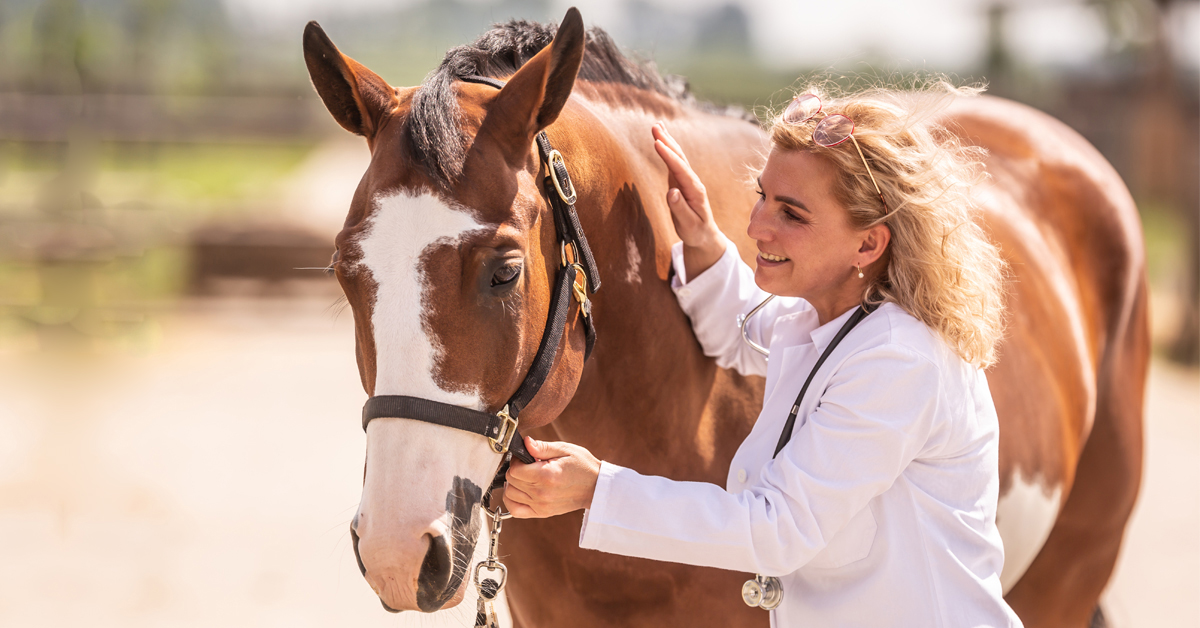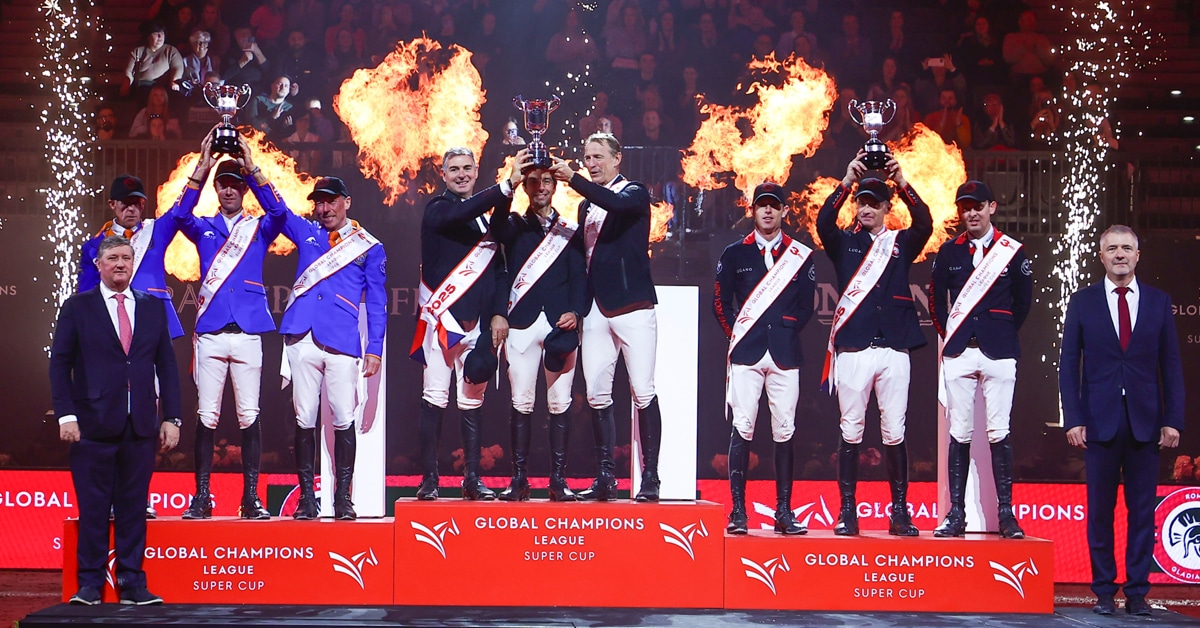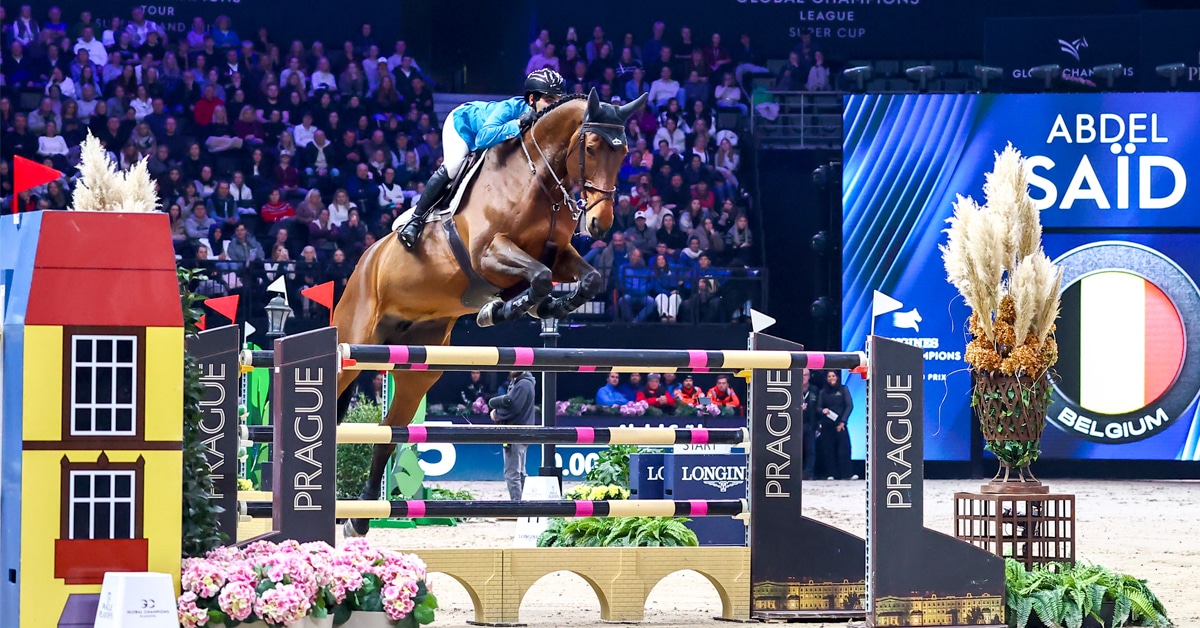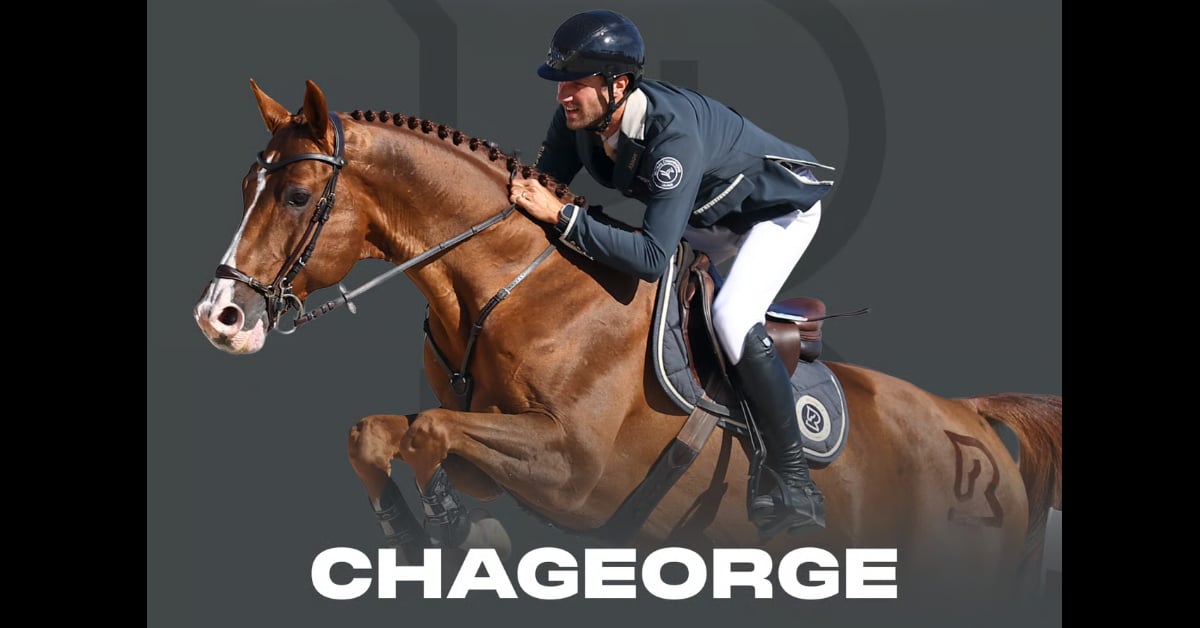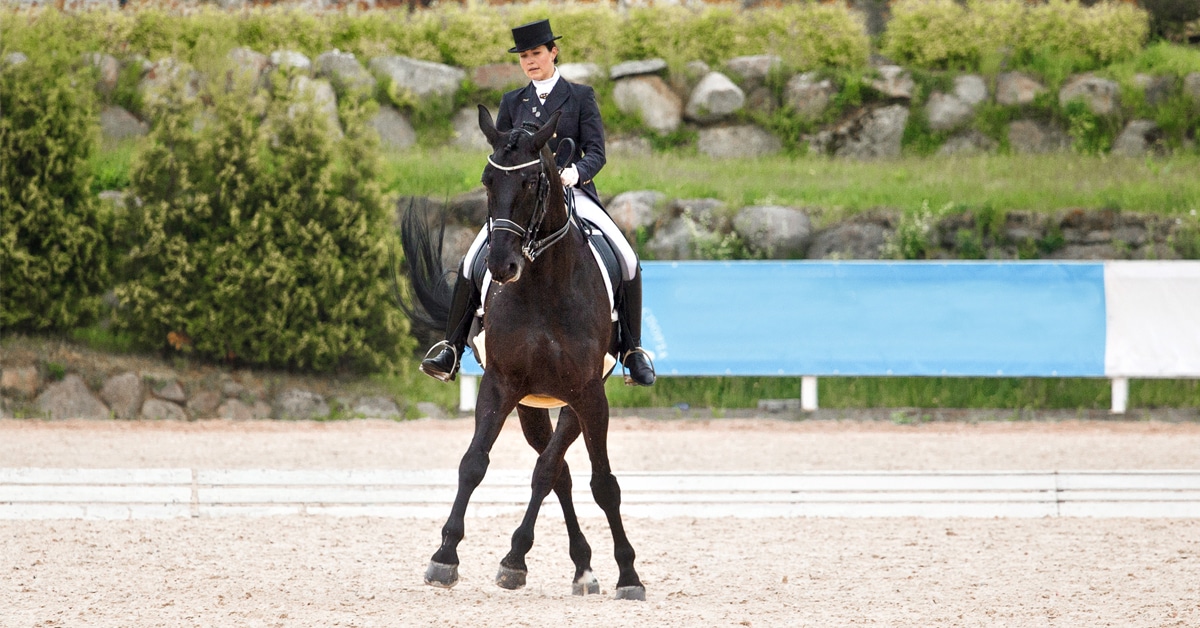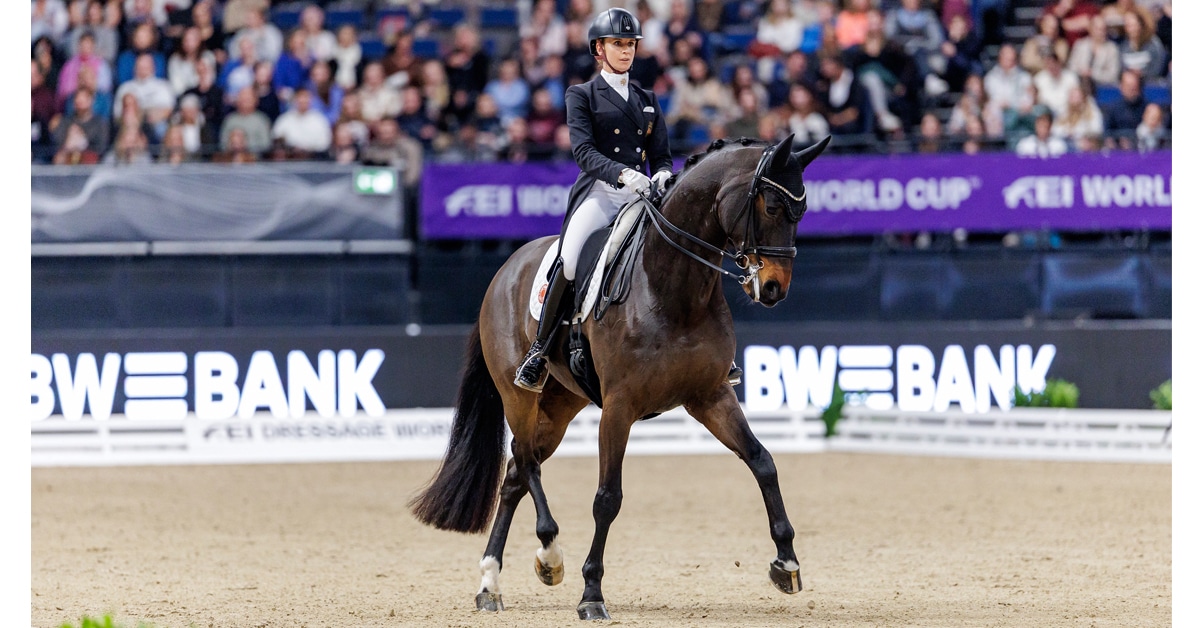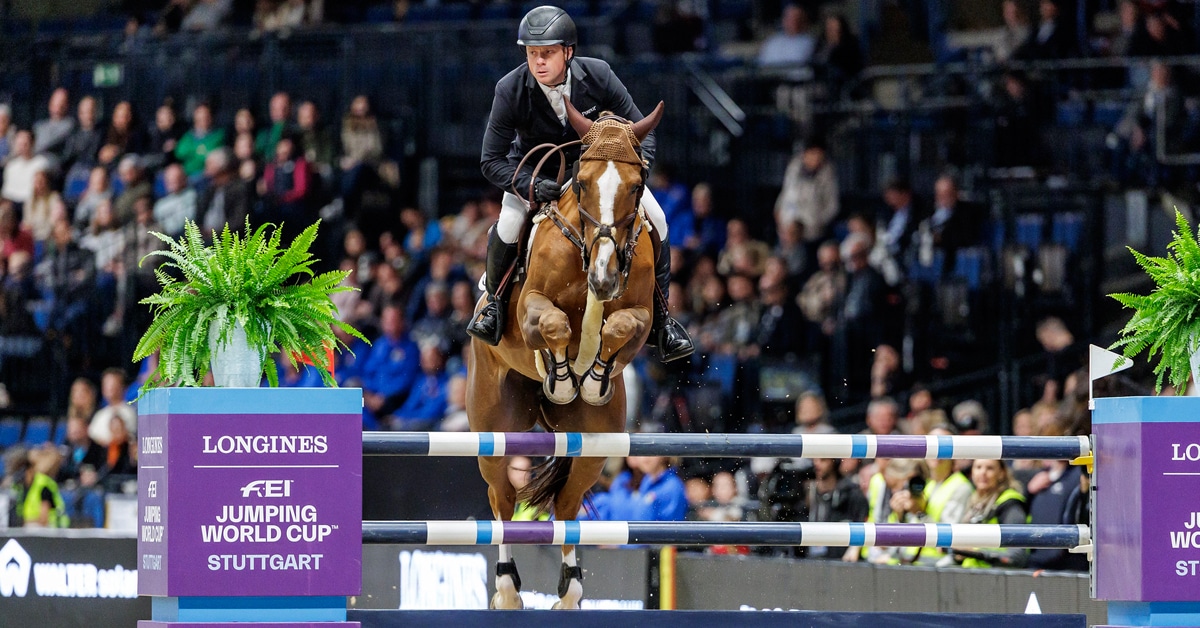The FEI European Jumping Championships celebrates its 31st anniversary as the action begins at the Club de Campo Villa de Madrid in Spain next Tuesday. At the inaugural Championship in Rotterdam (NED) back in 1957, where there were only individual medals on offer, just eight riders competed, and it was no surprise when Germany’s Hans Gunther Winkler took the title.
Fast-forward 54 years, and the 2011 fixture has attracted 85 riders from 22 countries, while 17 nations will fight it out for the team medals which were first introduced at Munich (GER) in 1975. The team title on that occasion went to the host nation, which also claimed individual gold (Alwin Schockemohle), silver (Hartwig Steenken) and bronze (Sonke Sonksen). The German record in these Championships is extraordinary – 45 medals in total including 14 individual and 6 sets of team gold. Their nearest challengers in terms of supremacy are the British, but with a relatively modest 28 medals, including six individual and four team gold, they are a long way adrift of their German counterparts.
PARTICULARLY SIGNIFICANT
Staged every two years, in the middle of the Olympic cycle, the FEI European Jumping Championships are particularly significant in the season preceding the Olympic Games. With London 2012 growing ever-closer, there is great pressure on the non-qualified nations to take this final opportunity to earn one of the three remaining places.
As hosts, the British are automatically qualified, and during last year’s Alltech FEI World Equestrian Games™ in Kentucky (USA), Germany, France, Belgium, Brazil, Canada and Australia booked their Olympic tickets, while The Ukraine secured a qualifying spot at Aachen (GER) this summer. That leaves nine countries – Austria, Czech Republic, Denmark, Spain, Hungary, Ireland, Italy, The Netherlands, Norway, Poland, Portugal, Switzerland and Sweden – battling it out next week, and all determined to do their very best to clinch one of the three coveted spots.
DEFENDING CHAMPIONS
The Swiss are defending European Team Champions, having taken their fourth title at Windsor (GBR) in 2009. And anyone overlooking them this time around would be unwise. Because although they fell out of the top-level FEI Nations Cup™ series at the end of last season, they will be back with all guns blazing in 2012 after cruising to victory in the 2011 FEI Promotional League series. On form, they could be a powerful force to be reckoned with. As could the Swedish side which was just pipped in the Promotional League and is hungry to return to the elite level of team jumping.
The Dutch should take one of the Olympic qualifying places if their 2011 FEI Nations Cup™ success-rate is anything to go by. They racked up a hat-trick of wins in Rome (ITA), St Gallen (SUI) and Aachen (GER) this summer and were heading the leaderboard right into the closing stages until finally overtaken by Germany. Denmark struggled long and hard in the series, as did Spain and Poland last season, but the Irish were fairly comfortable and are expected to put in a competitive effort next week. However, in keeping with the unpredictable nature of Nations Cup jumping, the element of surprise is never far away. At Windsor two years ago the Italians, who had just been relegated from the Meydan FEI Nations Cup™ series, sensationally took team silver while Germany had to settle for bronze.
THE GERMAN CHALLENGE
There is no escaping the strength of the German challenge this time however. Ludger Beerbaum, Marcus Ehning, Marco Kutscher and Carsten-Otto Nagel are already a formidable force, even before the addition of that extra ingredient of excitement supplied by this summer’s Aachen Grand Prix winner Janne-Friederike Meyer. And when the reigning world champions set their sights on a goal, like they did as the 2011 FEI Nations Cup™ series was drawing to a close, they usually get the job done. They won’t be too far down the order in the battle for the individual medals either.
Defending individual champion is Kevin Staut from France, but, after a season of mixed fortunes, he will need to return to the very top of his game if he is to be in with a chance of doing the double. So many of the participating countries have possible contenders – the German squad alone is bursting with brilliant partnerships including double-European-champion Beerbaum with Gotha, and Nagel and his lovely mare Corradina who were silver medallists in 2009. Could Meyer become only the third woman to take gold in the history of the Championships, following in the footsteps of Alexandra Ledermann from France in 1999 and German compatriot, Meredith Michaels-Beerbaum, in 2007? World champion Philippe Le Jeune from Belgium will be hoping to add European gold to his career record, and if the performance of Nick Skelton and Carlo at Dublin Horse Show this year was anything to go by, then the 53 year old British rider will not be far off the pace.
ROLL OF HONOUR
So many great horses and riders have carved their names onto the FEI European Jumping Championships roll-of-honour – Britain’s David Broome, with Sunsalve in 1961 and with Mr Softee in 1967 and 1969, Germany’s Paul Schockemohle and Deister who proved untouchable as they swept to a golden hat-trick between 1981 and 1985, the great Jappeloupe ridden by Pierre Durand from France and Britain’s John Whitaker and Milton are just a few.
There was a bizarre result at Lucerne in 1966 when there wasn’t a European rider on the podium as the medals went to Brazil’s Nelson Pessoa, America’s Frank Chapot and Argentina’s Hugo Arrambide. That’s what can happen when you award “Open” status to a fixture – but the cream always comes to the top, and these Championships promise a feast of great sport before the 2011 champions are crowned.
For further information on the FEI European Jumping Championships 2011, visit http://www.europeanjumping2011.com/
FACTS AND FIGURES
– Riders from 22 nations will compete.
– 17 countries have entered teams: Austria, Belgium, Denmark, France, Great Britain, Germany, Hungary, Ireland, Italy, The Netherlands, Norway, Poland, Portugal, Spain, Switzerland, Sweden, and Ukraine.
– 5 nations will be represented by individuals: Czech Republic (2), Liechtenstein (1), Luxembourg (1), Russia (1), and Slovakia (1).
– Horses representing 20 breeds will participate.
– A total of 83 riders are listed in the definite entries (8 September 2011).
– Germany heads the individual gold medal winning table with 14 to date. British riders have been successful on 6 occasions and French riders have taken the individual title four times.
– Germany also leads the team gold medal winning table with a total of six sets of gold medals since 1975. Next in line are Great Britain and the defending champions from Switzerland with four sets each followed by The Netherlands with three.
– Only two women have ever won the FEI European Championship individual title : Alexandra Ledermann (FRA) in 1999 and Meredith Michaels-Beerbaum (GER) in 2007.
– This will be the 30th FEI European Jumping Championships – the first was held in Rotterdam (NED) IN 1957.
– This event has taken place in Spain just once before, at Gijon in 1993.
– The 2011 FEI European Jumping Championships provide the final opportunity to qualify teams for next year’s Olympic Games in London (GBR).
The total prizemoney for the Championship classes is €300,000, of which €120,000 is allocated to the Individual Final.
More News
